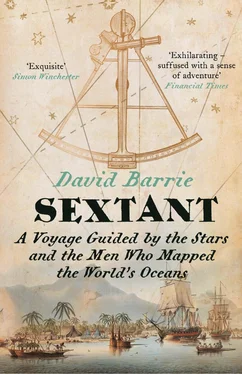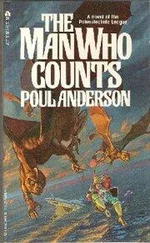The ferry shot past us at a distance of no more than a quarter of a mile, disappearing again very quickly, while the music gradually faded. We were carrying a radar reflector and ought to have been plainly visible on the ship’s radar, but we had the uncomfortable feeling that no one had seen us – and we knew that if we had been run down, the slight bump would probably have passed unnoticed. There was an inflatable life raft lashed to the foredeck, but even if we could have launched it in time, in those cold waters rescue would have had to come quickly. On the open sea, collision is the biggest risk faced by a well-managed yacht, as we were dramatically reminded a few weeks later, far out in the Atlantic.
*
Our last port of call was the magnificent and historic natural harbour of Halifax, Nova Scotia, where we spent a week busily preparing for the crossing. Louise now flew home, leaving just Colin, Alexa and me aboard Saecwen .
Halifax served as the Royal Navy’s main base in America during the Seven Years’ War, a pan-European conflict that formally broke out in 1756 (though hostilities between the British and French and their native allies had already begun in America) and was fought in many different parts of the world. It was here that James Cook – who was to become one of the greatest European explorers – began to learn the science of surveying from Samuel Holland, a military engineer serving with General Wolfe. 1
In 1759 Cook played a key part in the daring survey work in open boats on the narrow and dangerous ‘Traverses’ of the St Lawrence River below Quebec City. The safe channels having been marked, the British fleet was able to pass the Traverses without a single loss, thereby permitting Wolfe to land his forces upstream of Quebec. The French Governor angrily commented: ‘The enemy have passed 60 ships of war where we dare not risk a vessel of 100 tons by night or day.’ 2Wolfe and his French opposite number, Montcalm, both lost their lives in the famous battle on the Plains of Abraham that followed, but Quebec fell to the British, and the final expulsion of the French from North America soon followed.
Cook, who had not yet received an officer’s commission, continued surveying throughout his time on the American coast and in 1761 he was given a bonus of £50 ‘in consideration of his indefatigable Industry in making himself Master of the Pilotage of the River St Lawrence &c’ – a most unusual distinction. 3The following year, while assisting in the recapture of the port of St John’s, Newfoundland, Cook worked with another remarkable military engineer, Joseph DesBarres, and carried out important surveys that brought him to the attention of the Admiralty in London. 4He was starting to make his name.
*
Colin’s original plan had been to carry on to St John’s, Newfoundland, calling on the way at the small islands of St Pierre and Miquelon – the last remaining French outposts in North America, which Cook surveyed in 1763 5just before they were returned to France at the end of the Seven Years’ War. However, the icebergs emerging from the Arctic had drifted much further south than usual in the summer of 1973, and we decided that it was wiser not to go any further north. Dodging icebergs in a wooden boat is risky. The most dangerous kind are the ‘growlers’ – small pieces of ice but still weighing many tons, completely awash and therefore almost invisible above the surface – and bumping into one of them might have brought our voyage to a quick and fatal conclusion.
The last couple of days in Halifax were filled with lists. There were loads of provisions to buy, including a whole chicken in a tin to be saved for a special occasion. Everything had to be carefully stowed in one of Saecwen ’s many lockers, and a record kept of its location. Having removed their paper labels – which might well get washed off – we marked the tinned goods with a waterproof felt pen. Fresh vegetables and fruit went into cargo nets hanging from the low cabin roof. We checked the rigging for signs of wear, and I was hoisted in a bosun’s chair to make sure that all was well at the masthead. Looking down from that height Saecwen seemed very small indeed. Finally we did our laundry, filled up with diesel fuel, paid the harbour dues and said farewell to our Canadian friends. Early the next day we topped up the water tank, cast off and motored down the harbour.
The taking of Departure [wrote Joseph Conrad], if not the last sight of the land, is, perhaps the last professional recognition of the land on the part of a sailor … It is not the ship that takes her departure; the seaman takes his Departure by means of cross-bearings which fix the place of the first tiny pencil-cross on the white expanse of the track chart, where the ship’s position at noon shall be marked by just such another tiny pencil-cross for every day of her passage. 6
We took our Departure from a whistle buoy just off the harbour entrance. Thousands of miles of ocean and weeks of sailing lay ahead of us. We had no way of telling what weather we might face and would not be able to receive forecasts. We could only keep an eye on the barometer and hope for the best. I felt like an actor stepping on to the stage at the start of a big performance as I hauled up the sails. We hardened the sheets and Colin cut the engine. Apart from the sound of the wind and waves all was quiet. Saecwen heeled to the south-easterly breeze and began to dip her bows into the Atlantic swells. Cold spray rattled over my oilskins. Here we go, I said to myself.
Days 1–2: Didn’t sleep much. Up at 0730 for breakfast very conscious it would be the last meal on dry land for a while. Took shower in the club house. Our Canadian friends came to see us off and we set sail at 0930 for England. There was little if any wind and a thick cold fog soon rolled in. At 1115 we heard the outer whistle buoy close by. The wind picked up from SE about 4–5 but with a confused sea. Alexa felt sick and went below and I started feeling queasy too.
Colin and I had tinned beef stew and potatoes for supper. Now seem to be getting my sea-legs back but Alexa still curled up in the fo’c’s’l out of action neither eating nor drinking.
I took the watch from midnight until 0400. The far end of my sleeping bag was soaking wet when I turned in. Up again at 0800. Dull, grey morning, but no more fog.
Bumpy seas, as we plugged on to the south of Sable Island under reefed main. At 1200 things brightened up and the sun came out. Wind eased to force 3. Put up genoa [the largest foresail] and got a bit more speed. Had a nap before supper, then took watch from 2000 until midnight when the skies started to clear and the stars shone brightly all around.
The thick, chilling fog that closed around us as we left Halifax reduced our world to a damp, grey circle no more than 50 yards across. Once we were clear of the land it lifted, but the sea was lumpy and the sky overcast. Shearwaters glided quickly past us on stiff wings eyeing us coldly, and stormy petrels fluttered over the surface, dabbling their feet in the water, taking no notice of us at all. The spray flew back, wetting our faces and stinging our eyes, as we butted, close-hauled, through the short, steep waves, out into the Atlantic.
Coming off watch on the first night out I curled up at the far end of my bunk trying to keep clear of the drips coming through the deck just above me. This is no fun, I reflected – no fun at all. I am cold and scared, and there are nearly 3,000 miles of ocean ahead of us. What the hell am I doing here? Why did I agree to come on this trip? I kept thinking of all the comforts I had left behind, especially warmth and dry clothes. The leaks would eventually stop – more or less – but only when the sun-baked teak was thoroughly soaked and the seams had tightened up.
Читать дальше












